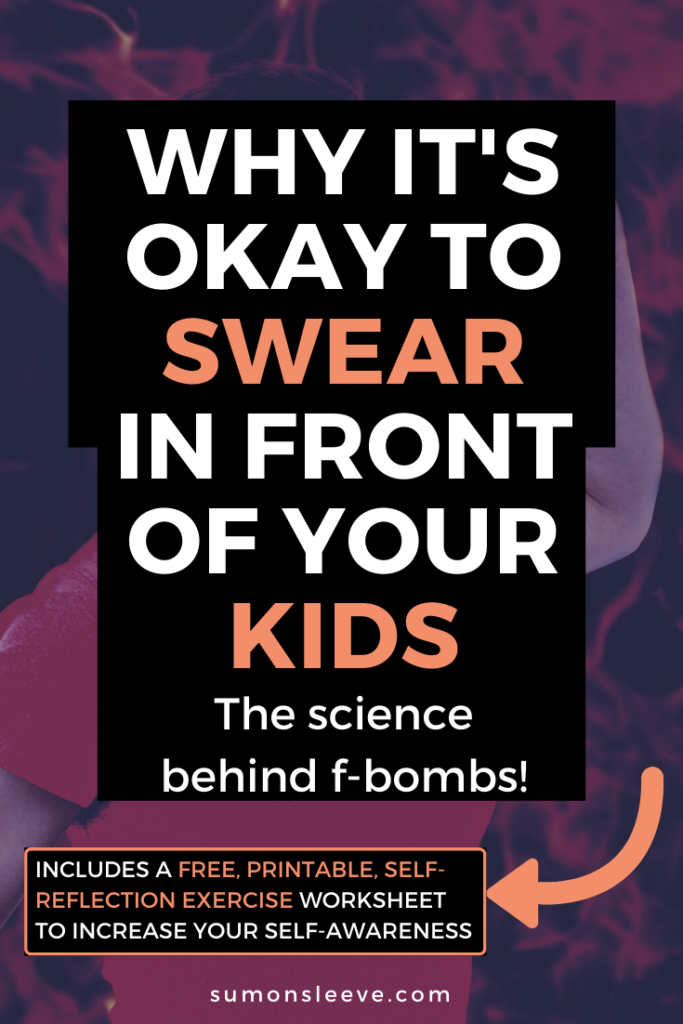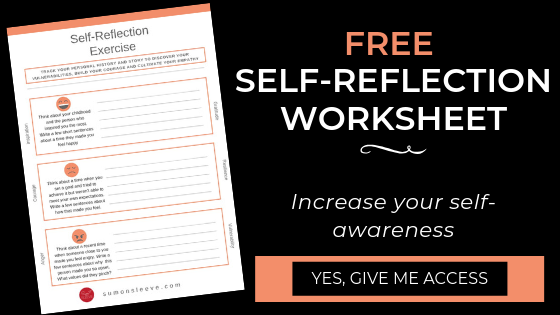“Science says cursing, cussing, using profanity to express emotions can be a good thing…but what about the children?”

“Their innocent ears and naive brains cannot possibly process the horrendous meaning behind those words.”
“If it’s okay to do so in front of children, then why do movies and TV shows censor foul language or put those warnings up before they start?”
“Monkey see monkey do. Swearing is associated with low-class, uneducated, rule-breaking, rough around the edges type of people. I don’t want my children to be perceived as such.”
So before I delve into this topic, I want to say that swearing is absolutely a personal choice for parents. Whether you do it or not, I totally respect your decision and whatever reasons you have.
Science says swearing can be good for us
Science has shown that using swear words can be an effective way of communicating.
By coupling an emotional response to the sentence, profanity can enhance its meaning, delivering more impact to those who are listening.
For something positive, which statement provides more emotional impact?
“Wow, I just won the lottery!”
“Holy shit, I just won the fucking lottery!”
And for something negative:
“I’m pissed that driver cut me off!”
“I’m fucking pissed that driver cut me off!”
It’s not just about delivering the emotional response to those who hear us but science has shown that when we swear, it can help us relieve pain, express our anger and frustration, keeping us calmer during stressful times.
I’m all in when it comes to healthy ways to manage our emotions.
Swearers are more honest and intelligent (Science says so, not me)
A study showed that people who swear are more likely, to be honest. That means speaking without a filter makes us more honest and I can totally relate.
As you guys know, I swear in my podcast, videos, blog posts, social media etc.
I don’t swear excessively but I swear because it’s authentic to who I am.
I grew up with a blue-collar, Chinese immigrant dad who swore like the dickens. I watched movies on Superchannel and 90’s action flicks every Saturday night.
I believe in saying what you mean and meaning what you say and swearing allows me to express my emotions truthfully.
I mean my blog is literally called “Sum (heart) on Sleeve” and defined as ‘someone who talks about their feelings despite growing up in a culture that hides them‘.
I don’t do it to get a rise out of people.
I don’t do it to be cool.
I don’t do it to fit in or to not fit in.
I don’t do it to please or offend other people.
I swear because it’s me.
Lastly, there was a study that showed people who swear have higher intelligence levels as it is associated with the possession of a greater vocabulary.
Well as a writer, I have an affinity for words. And some swear words have a certain “je ne sais quoi.”
What about the children?
As a mom, will I condemn my kids from swearing?
Nope. But that doesn’t mean I’m going to let them drop F-bombs whenever and wherever (cue Shakira).
Explaining context and intent is crucial
Like all the other “hot topics” (drugs, alcohol, the Internet, porn, social media etc) that parents have to teach their kids, establishing guidelines are important so that children understand the potential implications and social expectations around swearing.
It is crucial to explain to children that the context and the intent in which a swear word is used matters.
Swearing can be a healthy way to express emotions like excitement, happiness, anger, stress, pain etc.
Just recently, my 3-year old heard me say “shit” when I realized I forgot my phone in the car. She repeated the word and asked me why I said it.
So I explained to her that I forgot my phone in the car and saying “shit” is a way for me to express my disappointment and the annoyance I feel for having to go back outside to get it.
However, swear words can also be used as an insult, intentionally triggering negative emotions in others during a conflict.
For instance, you’re walking towards your car and you see the parking attendant writing you a ticket.
There’s a difference between:
“Ahh…for fuck’s sake!”
and
“You fucking bitch!”
Aside from having open and honest conversations about swearing with our kids, a good way to demonstrate why context and intent matters is to lead by example, following your own boundaries around swearing.
Personally, I don’t swear at my kids. I also don’t swear at other people when I’m around them.
During fights with my husband, I try not to swear because it adds more tension to an already hostile situation. I avoid derogatory swear words, especially those that are misogynistic towards women.
Authenticity matters
I grew up with parents who were at polar ends of the swearing spectrum and I ended up somewhere in the middle.
Although my dad has a trucker’s mouth (he swears in front of us, at us, at himself, at strangers, under his breath), my mom never swears and she hated it when my dad did.
I think it’s important to stress that swearing is a personal choice and to be cognizant that not everyone else will share your view on the matter.
My kids may grow up swearing more than me. Or they may not swear at all.
But as long as they are being true to themselves and are comfortable expressing themselves authentically and respectfully, that’s all that matters.
So Readers, what do you think of swearing? Do you love your F-bombs? Or are you one of those cussers who swear under your breath after stubbing your toe? Or are you a “Friggin”, “Jeepers”, “Gosh darn it”, “Crap” person?





